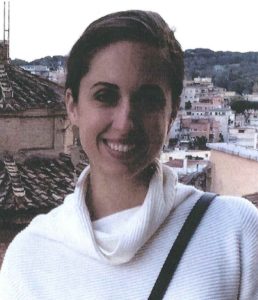
- Fellowship year:2018-2019
- University: Columbia University
- Dissertation Topic/Category: Middle East
- Dissertation Title: Making Falsafa in Modern Egypt: Towards a History of Islamic Philosophy in the Twentieth Century
My dissertation studies a movement known to participants and observers as the "Islamic philosophy revival" that took shape in Egypt over the era of British semi-colonial rule between the 1919 and 1952 revolutions. In addition to establishing philosophy as a modern academic discipline in Egypt and other Arab countries, the so-called "revivers" on whom I focus contributed to the international production of knowledge about classical Islamic philosophy (falsafa) that made it a fixture of the world philosophy canon as taught in postwar humanities curricula worldwide. In tracing these scholars' efforts to revive falsafa for modern Egyptian culture. I shed light on a wider phenomenon in twentieth-century intellectual history, namely the reconstruction of the Islamic philosophical tradition in universalist terms that made it both conversant with and distinct from Western philosophy. I argue that Islamic philosophy's formation as a world thought tradition was indelibly shaped by the local work of colonized thinkers to remake their intellectual heritage for a new world.
Classical falsafa is one of the most widely-studied non-Western thought traditions in the contemporary era, yet the historical actors and processes that established it as such are little understood. While the tradition's twentieth-century (re)invention as Islamic and/or Arabic philosophy has been partially studied as a process internal to Orientalism driven by Europeans, I approach it as a chapter in Islamic intellectual history by focusing on Egyptian Muslim scholars' reinterpretation of their philosophical heritage in light of and against the universalist claims of European philosophy. My work thus adds to an ongoing scholarly effort to register the agency of non-Western thinkers and thought traditions in modern global history. It also addresses a major discrepancy in scholarship on modern Islam, which remains focused on law (shari'a) while neglecting developments within other integral fields of the Islamic discursive tradition, notably philosophy, thereby reinforcing the tendency to define Islam by its political and juidical discourses. In reconstructing the Egyptian revivers' work to reform modern Muslim subjectivity and society by reinterpreting and re-teaching classical falsafa, I depict an Islamic intellectual movement that belies and broadens and the dominant conception of Islamic thought.
